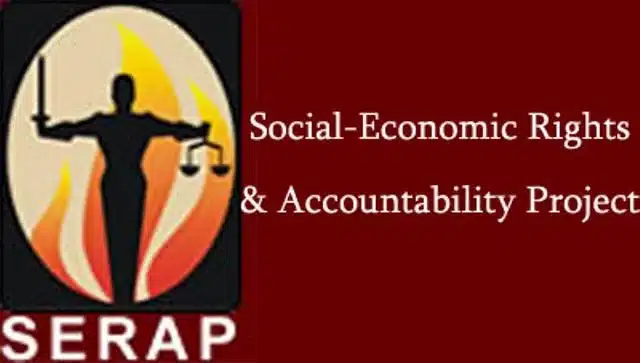‘Do Not Encourage Illegality’: SERAP Warns INEC to Sanction Early Election Campaigns or Face Lawsuits
Nigeria’s electoral watchdog is under fire. The Socio-Economic Rights and Accountability Project (SERAP) has issued a stark ultimatum to the Independent National Electoral Commission (INEC). It demands swift action against politicians and parties launching premature campaigns for the 2027 elections. Failure to punish these violations could lead to court battles. This comes amid growing concerns over electoral integrity in Africa’s most populous nation.
SERAP’s Urgent Letter: A Seven-Day Deadline for Accountability
On September 13, 2025, SERAP fired off a letter to INEC Chairman Professor Mahmood Yakubu. The group accused INEC of “condoning impunity” by ignoring early campaigns, which it called “unconstitutional and illegal.” SERAP gave INEC just seven days to respond, threatening legal action if ignored.
Key demands include:
- Identifying and prosecuting politicians and parties breaching rules.
- Monitoring violations and developing clear regulations on premature campaigns.
- Issuing directives to halt illegal activities and withdraw offending materials.
SERAP argued that INEC’s silence legitimizes breaches of the Nigerian Constitution, the Electoral Act 2022, and international human rights standards. “INEC should not be seen to be encouraging or giving legitimacy to political parties, candidates and other politicians carrying out early election campaigns outside the legally prescribed campaign period,” the letter stated.
The organization highlighted INEC’s powers under Section 83 of the Electoral Act to seek compliance info from parties and impose sanctions. It also cited Section 225 of the Constitution for probing funding sources. By not acting, SERAP warned, INEC risks eroding public trust in the electoral process.
INEC’s Stance: Concerns Raised, But Hands Tied by Law
INEC has not stayed silent on the issue. On September 10, 2025, Yakubu voiced alarm at a stakeholders’ roundtable in Abuja. He described early campaigns—billboards, rallies, and media ads—as a “threat to democracy” that hampers campaign finance tracking.
Under Section 94(1) of the Electoral Act, campaigns can only start 150 days before polling day and end 24 hours prior. Violations within that final window carry a N500,000 fine, but INEC lamented the lack of penalties for earlier breaches. “The major challenge for the commission is the law itself,” Yakubu said, noting no sanctions exist for campaigns before the 150-day mark.
INEC’s September 11 statement reiterated the warning, calling premature activities “illegal” and urging parties to wait for the official schedule. No primaries or nominations have occurred yet, making current promotions premature.
The Broader Issue: Why Early Campaigns Matter in Nigeria
Early campaigns aren’t new in Nigerian politics. They stretch back to the 2023 elections, where rhetoric dominated months before the official start. SERAP links them to economic drag, as “prolonged electioneering frenzy” diverts focus from development. They also fuel tension, division, and unchecked spending, undermining INEC’s monitoring.
Experts like former INEC boss Attahiru Jega echoed this on September 14, calling for sanctions to curb the trend. Opposition voices, including Rotimi Amaechi, accuse INEC of bias, like delaying new party registrations to favor the ruling All Progressives Congress (APC).
On social media, #EndEarlyCampaigns trends, with users decrying “vote-buying in disguise” and demanding reforms like making the Bimodal Voter Accreditation System (BVAS) justiciable. One X post summed it up: “INEC warns, SERAP sues—when will politicians listen?”
Legal and Political Ramifications: A Test for 2027 Elections
If SERAP sues, it could force INEC to clarify its powers, potentially amending the Electoral Act. Past SERAP wins, like against the National Assembly for budget transparency, show their clout. For 2027, this could set precedents on enforcement, ensuring fairer polls.
Politically, it pressures parties like APC and PDP, already accused of subtle 2027 jostling. Yakubu’s roundtable called for stakeholder buy-in to close legal gaps.
FAQ: Understanding SERAP’s Warning to INEC
Q: What are early election campaigns?
A: Any promotion of candidates or parties before the 150-day window under the Electoral Act—billboards, rallies, or ads.
Q: Why does SERAP say INEC must act?
A: INEC has tools like Section 83 to sanction breaches; inaction condones illegality and hurts rights to fair elections.
Q: What happens if INEC ignores the ultimatum?
A: SERAP will sue to compel action, as threatened in their letter.
Q: How does this affect 2027 elections?
A: It could lead to stricter rules, better finance tracking, and less division if enforced.
Q: Can citizens report violations?
A: Yes—contact INEC via their portal or hotlines for anonymous tips.
Conclusion: A Call for Electoral Discipline Ahead of 2027
SERAP’s warning—”Do Not Encourage Illegality”—is a clarion call for INEC to wield its authority. With early campaigns already muddying the waters, swift sanctions could restore faith in Nigeria’s democracy. As Yakubu noted, the law needs gaps filled, but SERAP insists enforcement starts now. If INEC acts within seven days, it could avert lawsuits and set a strong tone for 2027. For Nigerians, it’s a reminder: Fair elections demand vigilance from all. Watch this space—the clock is ticking.
